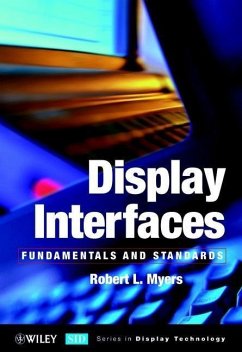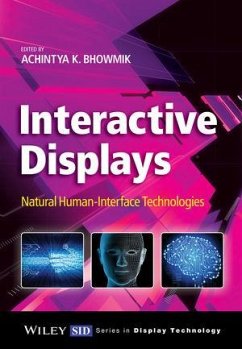
Multiple User Interfaces (eBook, PDF)
Cross-Platform Applications and Context-Aware Interfaces
Redaktion: Seffah, Ahmed; Javahery, Homa
Versandkostenfrei!
Sofort per Download lieferbar
114,99 €
inkl. MwSt.

PAYBACK Punkte
0 °P sammeln!
Multiple User Interfaces allow people using mobile phones, lap tops, desk tops, palm tops or PDAs to access and read information from their central server or the internet in a coherent and consistent way and to communicate effectively with other users who may be using different devices. MUIs provide multiple views of the information according to the device used and co-ordinate communication between the users. Multiple User Interfaces: Engineering and Applications Frameworks is the first work to describe user interface design for mobile and hand-held devices such as mobile phones. Given the pro...
Multiple User Interfaces allow people using mobile phones, lap tops, desk tops, palm tops or PDAs to access and read information from their central server or the internet in a coherent and consistent way and to communicate effectively with other users who may be using different devices. MUIs provide multiple views of the information according to the device used and co-ordinate communication between the users. Multiple User Interfaces: Engineering and Applications Frameworks is the first work to describe user interface design for mobile and hand-held devices such as mobile phones. Given the proliferation of books on web site design in the late '90s, this promises to be the forerunner in a new wave of books dealing with the issues specific to small screens, limited memory and wireless transmission. It also deals with problems relating to multi-user functionality and sharing the same application over various platforms. * Offers a comprehensive account of state-of-the-art research * Combines human and technical aspects including social interaction, workflow, HCI, & system architectures. * Provides practical toolkits, guidelines and experience reports * Includes contributions from leading experts at all the key institutions - Virginia Tech, Concordia University, Lancaster University, Ericsson & Intel With such a unique and cutting-edge approach researchers and developers working on user interface design in companies manufacturing handsets and other portable devices, university HCI groups and companies providing web-based information services for delivery to hand-held devices will find this indispensable.
Dieser Download kann aus rechtlichen Gründen nur mit Rechnungsadresse in D ausgeliefert werden.












